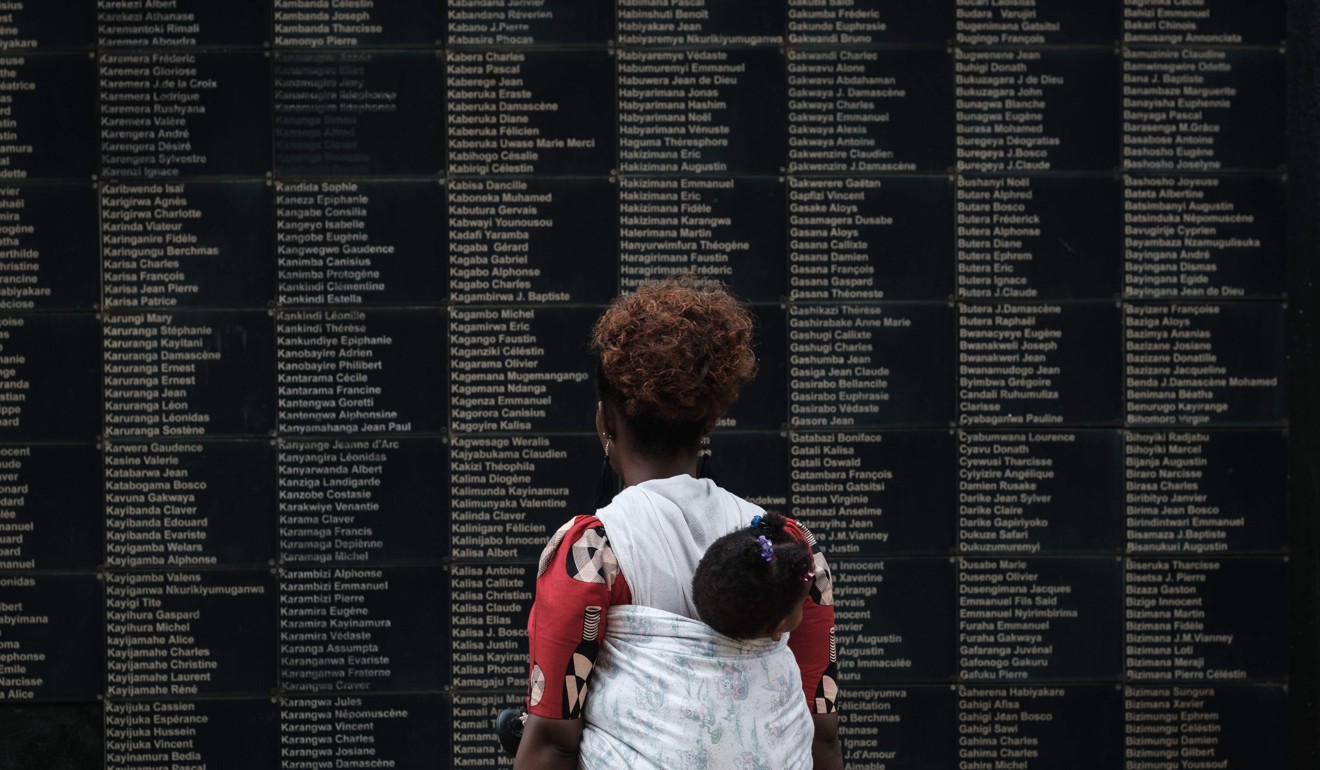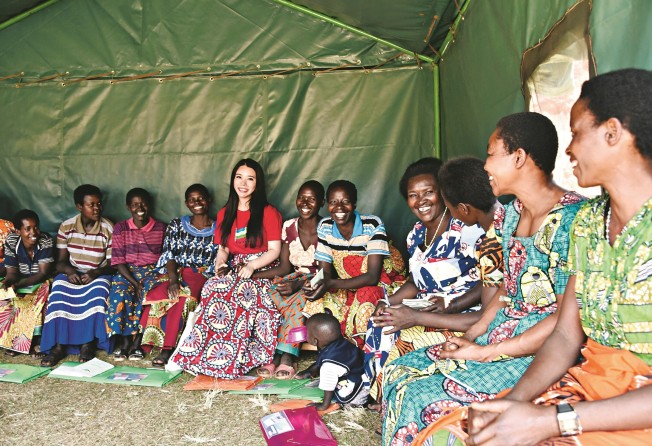
Promote women’s equality in the workplace – it’s long overdue, and it would boost the economy for everyone
- Frustratingly outdated attitudes, including in East Asia, still keep women from reaching their potential in workplaces and governments. Numbers show that if we can bridge the gender divide worldwide, the boost to GDP would be substantial

By the time, a quarter of a century ago, Rwanda’s bloody civil war had run its course, with the majority Hutu slaughtering around a million of the Tutsi minority, the country was a traumatised wreck. Out of a remaining population of 6 million, 80 per cent were women, and around 5 per cent of these had been raped.
Today, Rwanda is a country run by women. Taboos against women on inheriting property, opening bank accounts, even going to school have, by necessity, been thrown aside. Sixty per cent of Rwanda’s members of parliament are women – more than anywhere else in the world (only Cuba and Bolivia come close, with women accounting for over 50 per cent of parliamentarians).
This terrible tragedy brings to mind World War I (1914-1918), in which an estimated 15-19 million soldiers died and a further 23 million were wounded. It brought my grandmother and her sisters into the workforce (and left my great aunts without husbands), giving momentum to the long, slow suffragette movement that provided the foundation for the 20th-century’s steady improvement in women’s rights.
Which raises a terrible question: does it always take massive tragedy before the world’s male-dominated governments are forced by necessity to bring down the barriers to women’s equal participation?
The hopeful answer to that must be no, though I wonder if we will ever discover the scale of personal tragedy that must sit behind the #MeToo movement, and the myriad invisible tripwires thrown in the way of women who want to build meaningful properly-paid careers beyond the home and raising children.

As a 68-year-old white male who, without being conscious of it, has for a lifetime been the beneficiary of the multitude of barriers to competition from capable women, I feel an indelible guilt. I like to think I got where I did on merit, but like to forget that half of those keen to compete with me had their hands tied behind their backs in ways I never noticed.
I recall a close (female) friend at university who, like me, passionately sought a career in journalism. I was lucky to start my career with a fiercely fought-over graduate traineeship with the Mirror Group. She became a secretary in the BBC World Service. She also became a great journalist, but I wonder about her “rites of passage” from a starting point making coffee and taking shorthand.
This month’s edition of National Geographic is a tribute to women that have been part of the century-long battle to create a world in which women truly do “hold up half the sky”. Apart from recognising the achievements of so many women that have fought over barriers that never stood in a man’s way, and their many little victories, the story is also a sobering reminder of the barriers still invisibly in place.
It notes that, in Pakistan, 75 per cent of men still believe it is unacceptable for a woman to have a paid job. It notes the campaigns being (successfully) fought in Britain for sanitary towels to be available in school so no girl ever has to miss school because of her period.
It notes that, even today in the US, a woman on average earns 80 cents for every dollar earned by a man in the same job. It notes that 43 per cent of women in the US end up taking at least a year out of their careers either to bear a child, or care for family elders – with their careers normally being impeded thereafter.
It draws fascinatingly on research done at the Georgetown Institute for Women, Peace and Security, that tracks the pace of empowerment of women – measured by inclusion, security and justice – across 167 economies. Predictably, Norway, Switzerland, Finland, Denmark and Iceland lead the field. Indeed, the top 10 countries are European. But Asia’s economies don’t fare so well. The best we can do is in Singapore, which comes in at 23rd, with Japan at 29 and South Korea at 33.
But Hong Kong limps through at 70th, with low scores in “son bias”, employment opportunity and government representation. I had always thought of Hong Kong as awash with empowered women both in government and in top companies, but there is food for thought here. China follows, in 76th place, also scoring badly in educational opportunities for women.
But the true ignominy is reserved for African and Islamic states in Central Asia, which occupy (with the exception of Myanmar in 150th) the bottom 24 places.
Here in Asia, our work in Apec, and in the Apec Business Advisory Council (ABAC), has given priority to breaking down misogynistic barriers for almost two decades, but clearly there is much work still to be done – from barriers in education, recruitment and retention, to advancement to senior positions.
The recent Women in the Economy Forum, in La Serena in Chile, focused on building the “five pillars” – access to finance, access to markets, building skills and health, underpinning leadership by women, and in building women’s skills in science, technology, engineering and maths (STEM). It is noteworthy that, worldwide, still only 16 per cent of engineers are women, and only 25.6 per cent are computer scientists.

ABAC’s 2019 Financial Inclusion Forum drew on McKinsey work to estimate that bridging the gender imbalance worldwide would lift global GDP by US$28 trillion by 2025. In the Asia-Pacific, they say we would add US$4.5 trillion to annual GDP if women were not so widely sidelined in our region’s workforces.
The work in Apec, and of course elsewhere, shows that we don’t have to have bloody tragedies to galvanise changes that deliver gender equality and equality of opportunity, but progress feels frustratingly slow.
When last year a group of ABAC women business leaders met Roberto Azevedo, director general of the World Trade Organisation, to press him to do more in the WTO to break down barriers to women in trade, he gave an encouraging response, promising that clear initiatives would be taken to next June’s WTO Ministerial in Nur Sultan in Kazakhstan.
When we met afresh with Azevedo in Geneva three weeks ago, we learned a “Women’s Initiative” had indeed been launched, but that there may be nothing substantive to table at Nur Sultan. Proposals for the initiative were not “text ready” he said. Really? For an initiative that has been 120 years in the making?
David Dodwell researches and writes about global, regional and Hong Kong challenges from a Hong Kong point of view